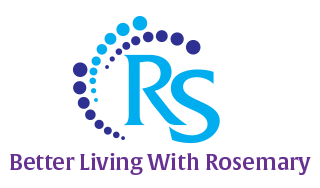My Child is a Picky Eater: Part 4

Increasing Personal Awareness
This article draws a relationship between interpersonal relationships, our role in those relationships and increasing our personal awareness. As we increase our personal awareness and realize that we create our reality through our thoughts and words, perhaps we can make a ‘shift’ with the reality of “picky eating” mealtime behavior. This article also draws relationship about the power of our words and how words profoundly affect our bodies through the work of Masaru Emoto.
The two most powerful words in any language are “I AM”. Translated to picky eating, what I often hear verbalized from caregivers is “I AM frustrated, angry, irritated, exhausted, at my wit’s end __________ (fill in the blank) about my child’s picky eating.
I AM: Mad that I have to spend so much time getting my child to eat, resentful that other caregivers don’t have this problem and I do, a terrible cook … and more. I typically hear these words in the presence of the child who has the “problem”.
Other phrases I hear are “he never eats” or “he only eats a certain type of cereal” or “she is so picky” or “I can’t get him to eat anything” or “he only drinks milk”.
Words have power. More power than most will give credit to. With this type of unconscious use of language in the above paragraphs, isn’t it possible that we are unconsciously creating what we don’t want? Energy flows where thought goes.
My challenge to you is to begin listening to the words you are using. Tape record a typical conversation at the dinner table, or when you are having a phone conversation with a friend and then go back and listen to your side of the conversation. You will more than likely notice more negative words spoken than positive words. This negative language is actually a reflection of the “self-talk” and is the silent “in your head” language.
Some examples are listed in the table below. See if any of these sentences resonate:
| I Am | I Hate | It Is | I |
|---|---|---|---|
| Mad | That my child won't eat | Impossible to get my child to eat | Have tried everything and nothing works |
| Stupid | Mealtimes | The way things are done | Can never get ahead |
| A failure | Cooking | Not even worth trying | Dread mealtime |
| Worhtless | Preparing food | Making me crazy my child won't eat | Am never listened to |
| Irritated | Feeding my child | Such a struggle during mealtime | Wonder if this kid will ever eat |
| Inadequte | Myself | Always a great effort | Can't win |
Perhaps you do indeed feel like a failure that your child is not eating, and this is reinforced by other caregivers and family members through the use of their “unconscious” language. Or reinforced by the use of their conscious language! Either way, a story is developed that supports an underlying belief. This then creates self-talk which unintentionally reinforces the picky eating behaviors of the child. Whew.
Interesting, isn’t it? As you take a deeper dive into other reasons as to why your child isn’t eating, maybe some of these perspectives will consciously trigger using some different language about the situation. Used over time, this can literally change the trajectory of your life.
Looking at the language used in the previous table—and getting in touch with how you feel about that language let me ask you—do any of those statements uplift you? Do any of those statements make you feel more positive and happy? Probably not. You see, there is a certain vibration or “energy” to words. Words do make a difference to our psychological well-being and biological make-up. Psychologically, you were not uplifted by those words.
The biological effects of negative language are profound. I am taking a side trip to talk about a Gentleman named Masaru Emoto. This does have relevance to this article. He has published bestselling books on the hidden messages in water. He began his work when he realized that no two snowflakes were the same and wondered what water from different sources looked like. His life’s work had been investigating what frozen water crystals look like under a microscope. What he discovered over the course of his career is fascinating.
One primary discovery was that water from any natural body (river, lake, and pond) had beautiful, well-formed crystals. Emoto was from Tokyo, and when he examined the city tap water which was heavily chlorinated, the structure of the water was completely destroyed. He also discovered:
- Water molecules exposed to beautiful classical music had beautiful well-formed crystals with distinct characteristics.
- Water exposed to violent heavy metal music resulted in fragmented and malformed crystals.
- Water exposed to the words “thank you” had beautiful hexagonal crystals as opposed to water that had been exposed to the word “fool” which had crystals malformed and fragmented.
- Water exposed to expressions like “let’s do it” created attractive well-formed crystals but the crystals were barely formed at all when exposed to the command “do it!”
Why on earth would I side track to water? It has to do with how we humans are constructed. Neonates and infants are 99% water. We float in water in our mother’s womb. Children are in the 80-90% range of water content in their bodies. As adults, we are 75-80% water and if our water content drops below 50%, we die. We are water. Additionally, our planet is covered 75-80% by water.
Emoto and many others say that words are an expression of the soul. Therefore, the condition of our soul AND body will be enormously impacted by the water that composes it. So, harmful music and harmful words can, and do, impact the body physically.
Emoto found the most beautiful crystals were created by writing the words “love and gratitude” on pieces of paper ant taping them to the jar the water was in. When the water was prayed over, the beauties of these crystals were even more surpassed. And, astonishingly enough, the damaged and fragmented crystals re-formed into beautiful crystals when they were prayed over.
You can read more about Emoto and his work through this little book: The Hidden Messages in Water by Masaru Emoto.
Here are some interesting you tubes about Emoto’s work.
https://www.youtube.com/watch?v=au4qx_l8KEU (3 min 42 seconds)
https://www.youtube.com/watch?v=bm0h3DXs6-4 (6 min 53 seconds)
If you can program your mind and even the cells of your body by negative self-talk, you certainly can reprogram yourself by positive self-talk and uplifting words, thoughts and emotions directed to yourself and those around you – especially your problem eater.
I often say to caregivers that you really cannot change someone else’s behavior. What you can change is your behavior and expectations, and then other’s behavior will more than likely change for the positive. Louise Hay says the only you can ever control is your current thought. What are you thinking right now?
Take a look at this table:
| I Am | I Love | It Is | I |
|---|---|---|---|
| Enthusiastic that I get another chance to have a great meal with my child and family | Providing interesting foods and experiences around food so my child learns great eating habits | Fun/rewarding preparing food and having people enjoy it | Love my child and am learning new ways for us all to eat different foods. |
| Looking forward to a positive mealtime | Mealtimes and talking about mealtime | Exciting to see my child try new foods | Interact with my child and family in loving and positive ways. |
| Grateful for the opportunity to cook for my family | Cooking | An interesting adventure learning how to read my child’s signals and react positively | Look forward to mealtime |
| Happy that my child tasted new foods today | Preparing food and teaching my child how to prepare food | Rewarding to see my child respond well to new foods | Have a voice in this family and I am heard |
| Thrilled that my child tolerated a different beverage in his cup. | Feeding my child | Easy to have positive mealtimes | Am teaching my child valuable life skills by learning how to eat a variety of foods |
| Enough | Myself | Important to me that I am heard | Let go of limiting beliefs |
Looking at the language used in the previous table, and getting in touch with how you feel about that language let me ask you…do any of those statements uplift you? Do any of those statements make you feel more positive? Do you see how the energy is different in the words from this table to the one prior?
In your particular situation, see if you can make a positive set of statements by writing them down and saying them out loud every day. Say them or read them every time you catch yourself in negative self-talk. It is amazing how much self-talk is negative.
If you have challenges stating things in the positive, write down the negative sentence and then work on that sentence to change it into something positive that will work for you. These sentences become your new affirmations. When I started my journey with affirmations, I used index cards and had one affirmation per card, which I flipped through multiple times per day. Eventually, my negative self-talk and negative self-image flipped around.
Doing this daily is the best self-care you can provide and it takes only a few minutes! As you get better at your use of words both spoken and written, you might just begin to feel better about yourself. I notice that caregivers take care of everyone but themselves and this is an easy path to begin your walk of self-care on also. When you take care of yourself, you are much more capable of caring for others.
Using the index card example, why not try this? Tape index cards with positive affirmations on them to your table or under the high chair seat or under the seat the child sits on. Here are a few examples:
- My child loves to eat new and different foods every day
- Our whole family loves meal times. It is a great time to talk about pleasant topics
- Mealtime is a peaceful and fun time
- In every way my child grows stronger, healthier and happier because of the nutritious food eaten
- My child happily eats what the family eats in a reasonable time frame
- My child meets and exceeds my expectations on food and drink variety
Positive affirmations, mirror work and other ideas as proposed by Louise Hay in her great book “You Can Heal Your Life” are great places to begin your journey. Changing the language you use as you go about your day can and will make a huge impact when working through the challenges of picky eating.
You play a significant role during mealtime. I hope this article provided you some “food for thought” about your role and opened your mind to the concept of how language can indeed shape our reality. I also encourage you to begin caring for yourself, only if for a few minutes a day.
My next article will delve into specific behavior modification strategies you can use to encourage your child to eat.
